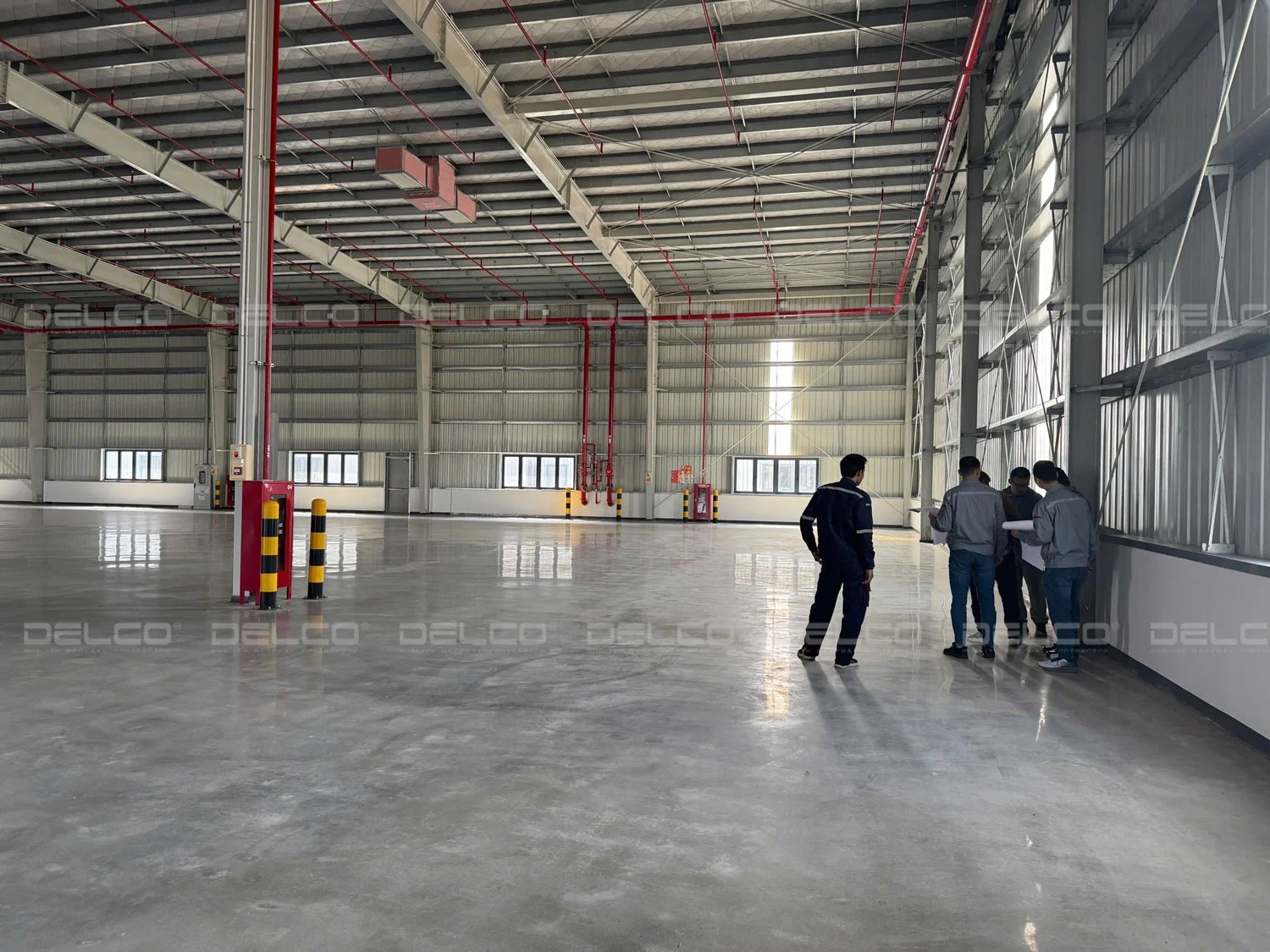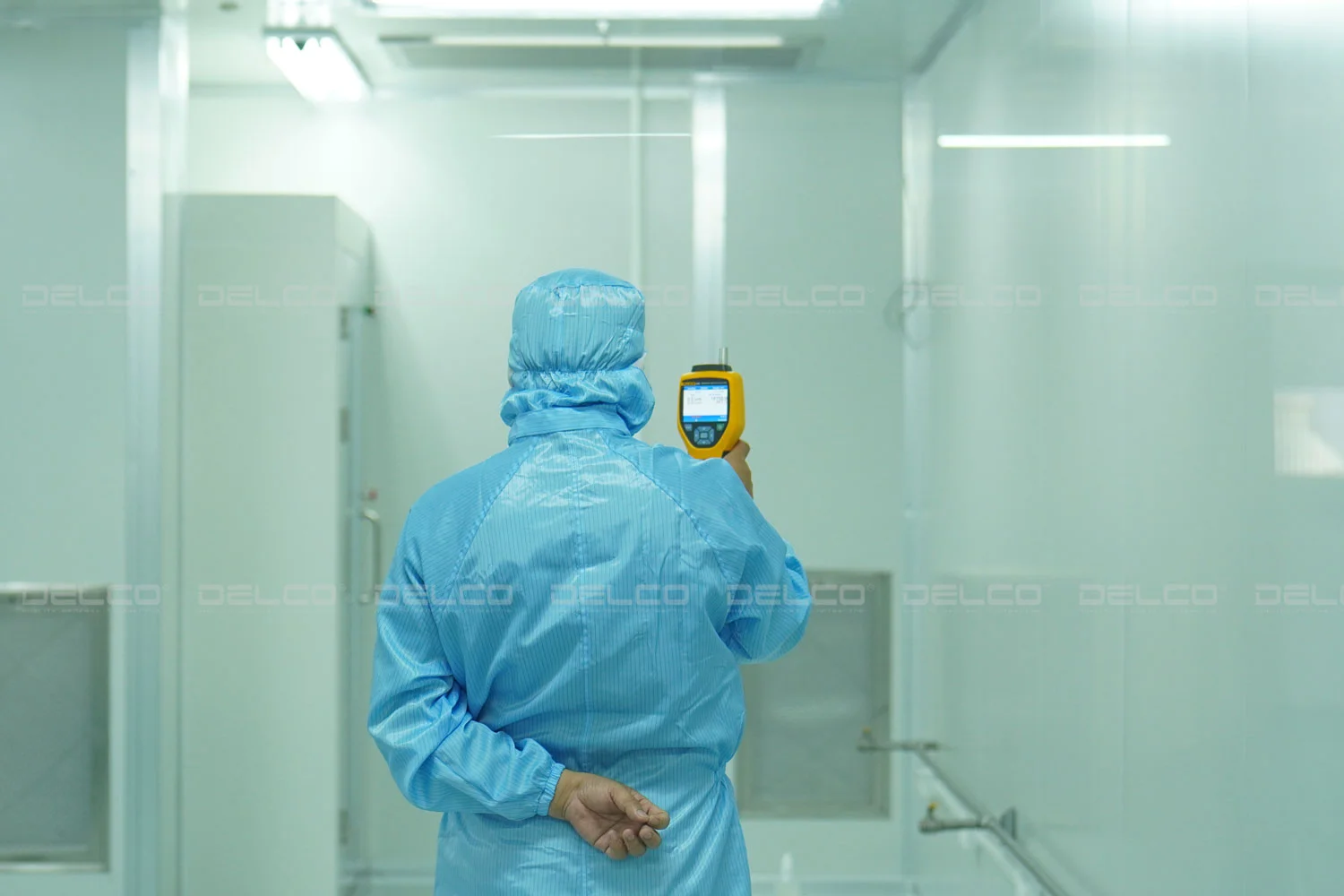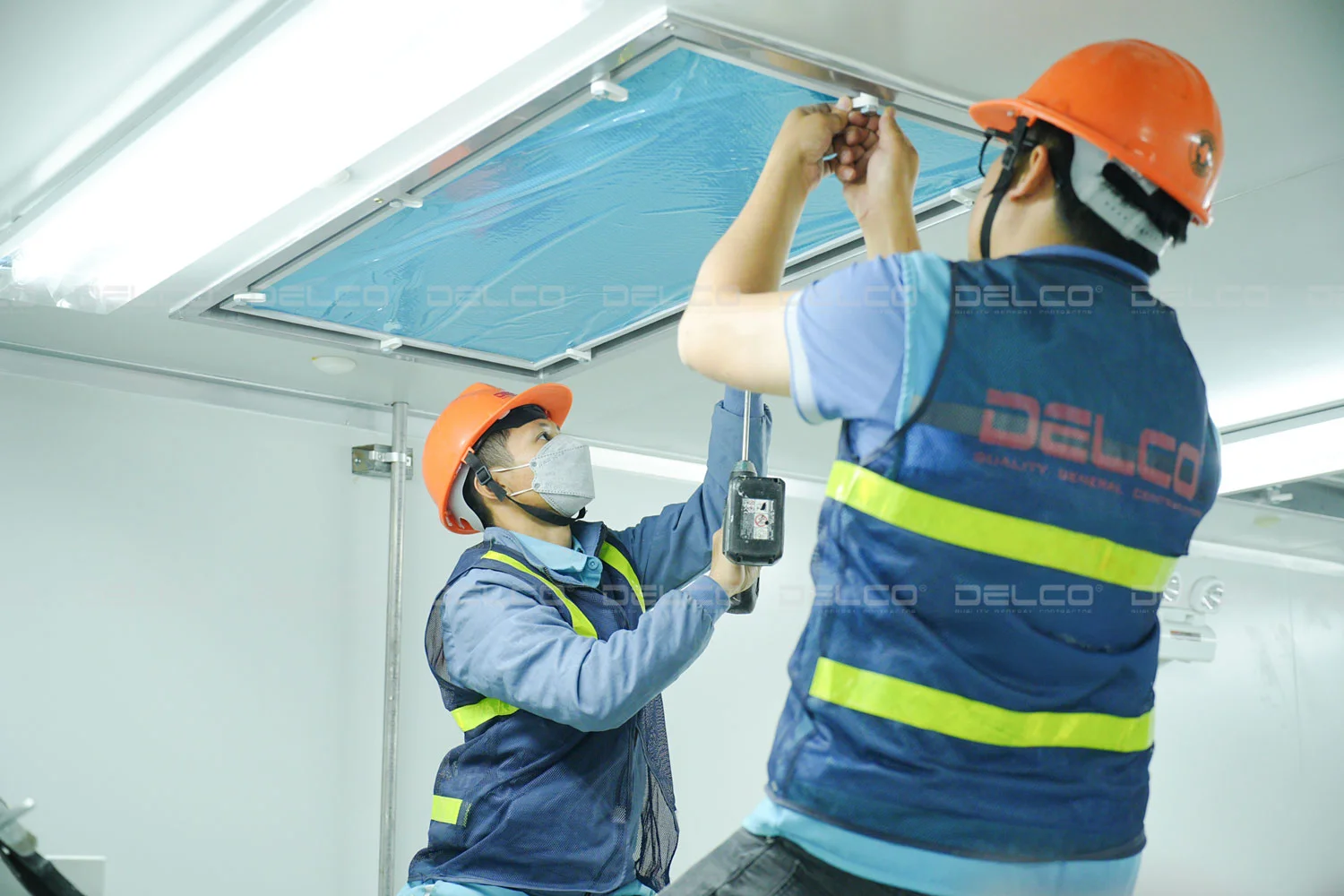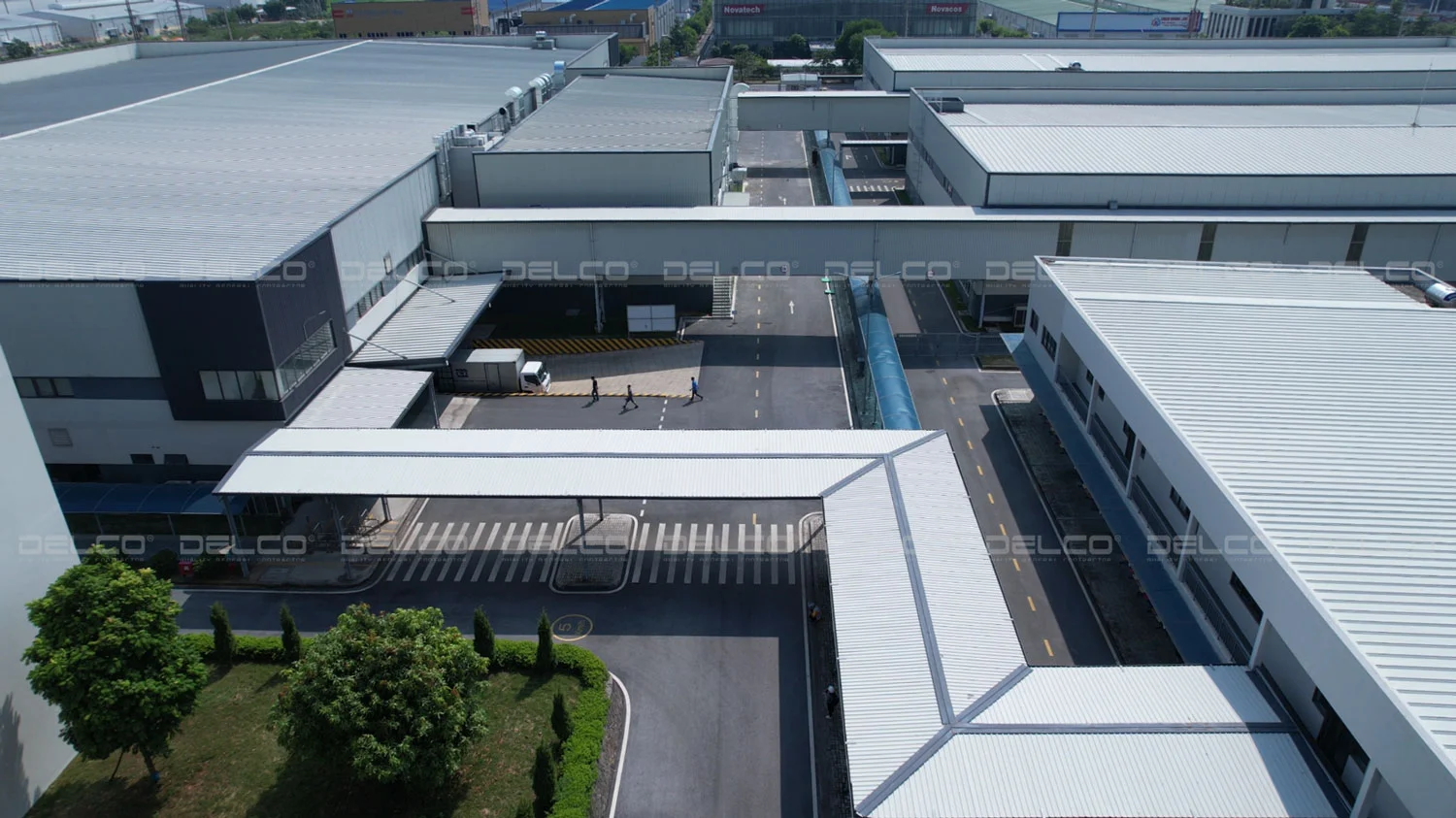Understanding the detailed factory fit-out process helps FDI investors deploy manufacturing projects quickly, cost-effectively, in compliance with legal regulations, and in line with technical standards.
Site survey and clarification of requirements
Surveying the condition of the ready-built factory and clarifying the investor’s fit-out requirements is the first and most crucial step, determining the effectiveness of the entire project. This step forms the basis for developing a preliminary design plan, architectural layout, and rational functional zoning. Investors must provide clear and comprehensive information on the intended production line, required functional areas (such as production, warehouse, office, technical zones), as well as any specific requirements like clean rooms, cold storage, compressed air, wastewater treatment, etc.

A thorough survey of the existing condition of the ready-built factory allows for the most suitable and optimized fit-out solution.
Ready-built leased factories typically come with only basic technical infrastructure. Therefore, investors need to carefully assess the current floor load capacity to ensure it meets the operational needs of the production line and the equipment to be installed. In addition, the existing MEP systems — including power capacity, water supply and drainage, fire protection, and HVAC — must be thoroughly reviewed to evaluate their adequacy. Conducting a detailed survey and clarifying needs from the beginning enables investors to select the optimal fit-out solution, while effectively controlling costs, quality, and project timelines.
See more: 4 criteria to help investors choose the optimal factory fit-out plan for 2025
Detailed design plan and technical drawings
Based on the results of the site survey and the agreed production requirements, the fit-out contractor will proceed with detailed technical design, including functional layout planning and MEP (mechanical, electrical, and plumbing) system design. The design must strictly comply with current Vietnamese standards and regulations to ensure the project receives approval and can be executed lawfully.
In addition, for specialized industries such as pharmaceuticals, electronics, or food processing, the design plan must align with the industry standards that the factory aims to meet — such as ISO, GMP, HACCP, or RoHS. Selecting an experienced design partner is crucial to ensure that the design satisfies rigorous technical requirements.

The cleanroom testing process ensures strict compliance with standards in an electronic component factory fit-out project, DELCO as the Design – Build contractor.
Legal procedures before construction
Depending on the scale of the fit-out and the scope of repair or renovation, investors must prepare and complete all relevant legal procedures before beginning construction. If the project involves changes to structural elements, the façade, or the building’s density compared to its current state, a renovation permit is required. For projects involving new installation or redesign of the fire protection system, it is mandatory to prepare and submit fire protection design documentation for official approval.
Furthermore, for manufacturing industries that generate wastewater, exhaust gases, or solid waste, investors must comply with the current environmental protection laws. This includes procedures such as environmental registration, environmental protection plans, or Environmental Impact Assessment (EIA) reports — depending on the project’s scale. Completing all necessary permits ensures that the project is implemented legally, minimizing legal risks during construction and future operation.
Fit-out construction
Once all legal procedures are completed, the project enters the construction phase. Common fit-out works include floor finishing, partition wall construction, installation of power and lighting systems, low-voltage systems, HVAC, fire protection, compressed air, water supply and drainage, and other auxiliary systems.

Fit-out construction must strictly follow all safety procedures and regulations.
Factory fit-out for leased facilities primarily involves repairs, upgrades, and integration with existing infrastructure. Therefore, construction on existing systems requires special caution and precision. Any errors during construction can directly affect the current structure, pose safety risks, or lead to operational and production issues later. Investors are advised to select a contractor with full capabilities, ideally one that offers integrated design & build services, to ensure tight control over project progress, safety, and construction quality.
See more: Key considerations for electrical system installation during rental factory fit-out
Handover and commissioning
Upon completion of construction, the entire project will undergo technical inspection and acceptance for each component, along with trial runs of key technical systems. The investor must ensure that the fit-out contractor provides a complete as-built dossier, final drawings, and operation and maintenance manuals for all MEP systems. Investors should carefully review the handover documents and request the contractor to provide detailed guidance on system operation and maintenance to ensure stable, safe, and long-term factory operations. Thorough inspection at this stage helps minimize operational risks and ensures the project meets the original design standards.

As-built documentation was digitized and fully handed over to the investor for the sports protective gear manufacturing factory fit-out project in Thai Nguyen
As a Design-Build Contractor with nearly 20 years of experience, DELCO specializes in providing turnkey fit-out services, offering lump-sum contracts that cover everything from site survey and design to construction and handover — helping FDI investors confidently and efficiently implement projects in Vietnam with safety and cost optimization.
See more: Key considerations for electrical system installation during rental factory fit-out
See more: Key changes in factory fitout in 2025
See more: 6 key factors to consider to build or lease a workshop






